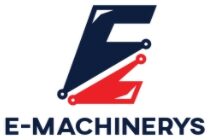Elegus Technologies, a spin-off from the University of Michigan in the United States, exploited the properties of Kevlar to manufacture a nanoscale membrane that insulates the electrodes in lithium-ion batteries. This not only reduces the risk of a short circuit, but also allows the design of thinner batteries. Industrial production will start at the end of 2016.
If numerous research and development works explore the tracks to improve the autonomy or the manufacture of lithium-ion batteries, safety is an issue which is gaining increasing importance.
The proliferation of mobile devices, connected objects, not to mention electric cars, makes this type of battery essential and ubiquitous in our daily life. So anything that can improve safety is obviously important. Precisely, in a little over two years, we could see the arrival of safer, finer and more powerful lithium-ion batteries.
A nanofiber separator
In any case, this is what Elegus Technologies, a North American company founded by researchers from the University of Michigan, promises . The latter have developed a separator made of Kevlar nanofibers which is inserted between the anode and the cathode while allowing the ions to circulate. The membrane prevents the formation of dendrites. These growths are formed in the long term under the effect of the contractions and swellings that the lithium undergoes during the charge-discharge cycles. These dendrites can damage the polymer separator that isolates the anode and the cathode and cause a short circuit. Likely to result in fire or even explosion of the battery.
Thirty companies already interested
In a scientific article just published by Nature Communications , the researchers explain that the pore width of their Kevlar membrane measures between 15 and 20 nanometers. A dimension sufficient to let the lithium ions pass while blocking the dendrites whose end is between 20 and 50 nanometers.
“The specificity of this material is that we can make it very thin so as to obtain more energy with a cell of the same size or we can also reduce the dimension of the cell”, underlines Dan VanderLey, one of the engineers who co-founded Elegus. In other words, this innovation will create batteries lithium-ion more efficient size equal to or smaller then. Thirty companies have already claimed a sample of this material. On its website the Internet, Elegus Technologies said its Kevlar can also be operated with batteries lithium-sulfur and lithium-air. She plans to start mass production of its product from the fourth quarter of 2016.
